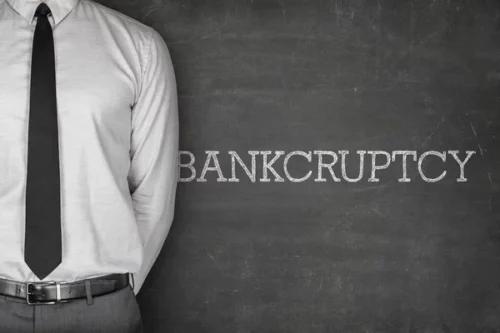As many as 35% of Americans carry credit card debt each month. But what is the worst that can happen if they are unable to pay?
Can a person end up with jail time for failing to repay their credit card debt?
We explain the rules applicable to debt collection in the article below.
Can You Go to Jail for Not Paying Credit Cards?
It is not possible to be criminally charged for owing credit card debt. In the US, there are only two types of dues for which a person can end up in jail. These are unpaid taxes and child support payments.
In fact, the Fair Debt Collection Practices Act prohibits creditors from using threats of jail time or prosecution against consumers.

However, they are allowed to sue the debtor in civil court and receive a judgment against them.
This would usually entail seizing wages or reaching an agreement for the consumer to repay the amount owed.
The court might then hold the debtor in contempt if their instructions are not obeyed, and potentially order them to serve jail time.
Is It a Crime Not to Pay off Credit Cards?
Failing to pay off credit card debt is not a crime, but it does have serious consequences.
As explained above, collection agencies or credit card companies can file a case in civil court to receive what they are owed.
If ignored, this could lead to a default judgment against the debtor.
Furthermore, not following summons or hearings related to the repayment might also be considered a “crime.”
In cases where debt is unmanageable due to life circumstances beyond control, it might be fruitful to opt for bankruptcy.
We will cover this and other options in later sections.
What Happens If You Don’t Pay Credit Card Bills?
Missing credit card payments can result in overdue notices, late fees, increased interest rates, and, eventually, lower credit scores.
The process would start with the bank issuing several texts, emails, and other communications regarding non-payment.
Next, late fees would be charged on the amount due.
This may increase if several billing cycles pass without receiving the sum.

Simultaneously, it would be reported to the credit bureaus.
They will reduce the cardholder’s scores as each month’s due dates pass.
Eventually, a court case might be filed to force the debtor to repay the amount.
Can You Be Forced to Pay Credit Card Debt?
A credit card debt collector cannot have someone arrested for not paying back their dues.
In fact, if they are threatening jail time or prosecution for this, it is a breach of federal law.
However, as explained earlier, they can sue the cardholder for the amount owed.
If this happens and the debtor does not respond, a default judgment against them may be made.
This might allow the creditor to garnish their wages, levy their bank account, or seize personal property for payment.
Hiring a lawyer could help reduce or dismiss the case.
In some states, creditors may petition the court to have one arrested for ignoring their order to pay the debt.
Keep in mind, though, that arrest cannot happen simply because money is owed.
It will only occur if the debtor ignores a court order.
Can I Get Rid of My Credit Card Debt Without Paying?
It might be possible to get away with non-repayment, though this is usually not a good idea.
If there is no other option left, here are a few things that can be done.
Stopping Payment
This is the simple wait-and-watch approach.
Over time, the bank or credit card company will sell the debt to collection agencies.

As mentioned earlier, if they do not file proceedings against the debtor within three to ten years (depending on the state), there is no way to force repayment.
Of course, they might still hound the person to repay using all means available to them.
However, credit scores would take a nosedive, and it will be virtually impossible to secure any form of loan in the future.
Debt settlement
It is possible to settle the debt for less than the amount owed with the firm handling it.
This could either be the bank or collection agency.
The process involves negotiating an agreement with the creditor stipulating that they agree to accept less than the unpaid debt.
Typically, this could be anywhere between 50 to 80% of the original amount.
The settlement can either be negotiated directly or through a law firm.
Declaring Bankruptcy
This should only be used as a last resort.
It essentially says that you are starting over, and no other recourse is left.

If filing bankruptcy is the only way left to go, there are two options available:
Chapter 7:
In this case, assets may be sold to repay whatever is owed.
These might include personal property or even a house.
Chapter 13:
Here, the court can set up a repayment plan.
Typically this would create a certain structure for the debtor, and beyond a specified timeline, the amounts remaining would be discharged.
Be mindful that bankruptcy filings are reported to the credit bureaus.
They could impact your score for as many as ten years.
This can have long-term effects on your financial health. Therefore, it’s important to weigh all options before filing one.
Do Debt Collectors Give Up?
A creditor or debt collector is usually a professional firm that specializes in the task.
Their payday is linked to successfully getting the amount back.
It is unlikely for such companies simply to give up on their efforts to get repayment.
They are relentless and may even use sneaky tactics to pressure debtors.
It is important for cardholders to understand their rights and what to do when pursued by one.
How Long Does a Company Have to Take You to Court?
Debt collectors have between three and ten years to take someone to court and sue them for it.
The duration varies depending on the laws of the state in which the money is owed.
There is a common misconception that the time limit is seven years, but this is incorrect.
The rule pertaining to the above duration comes from the Fair Credit Reporting Act (FCRA).
It states that most negative items on a credit report must be removed once a seven-year period is over.
Collection agencies may still hound you and even sue if large sums are involved.
As mentioned earlier, a court might pass judgment in their favor.
This may let them garnish wages or even seize personal property to enforce recovery.
Final Thoughts
Federal data suggests that consumer debt in the US has ballooned to over $16.9 trillion.
Most of it is in the form of student loans, credit cards, mortgages, and car loans.
In such a scenario, debtors need to be aware of their rights when it comes to the collection of payments.
There are only two types of dues for which a person can go to jail – unpaid taxes and failure to pay child support.
Unethical and aggressive debt collection tactics, such as threatening someone with jail time, are federal crimes.
That said, it is possible for agencies to sue the debtor for non-payment.
Not responding to the court’s summons or ignoring their orders can lead to imprisonment.
Moreover, avoiding repayment has significant repercussions.
It will hurt your credit score and make it difficult to secure any more debt in the future.
Collection agencies may hound you through various means available at their disposal.
Consider reaching an agreement with the creditor to pay less.
If no other option is possible, filing for bankruptcy can be one final recourse.


 Tags:
Tags:










